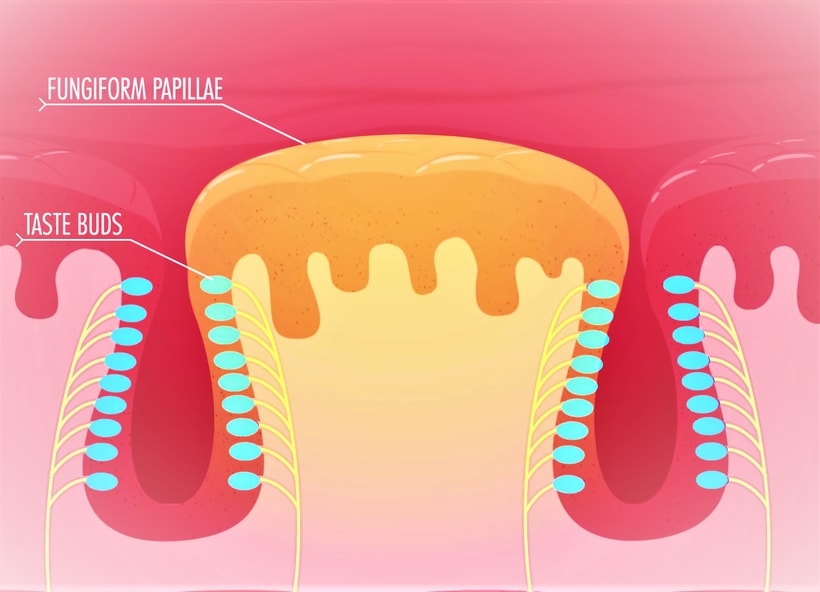Yes, the sense of taste is inherited. Studies have shown that there are genes that affect our ability to taste different flavors, such as sweet, sour, salty, bitter, and umami. For example, one gene called TAS2R38 is responsible for our ability to taste the bitter compound phenylthiocarbamide (PTC). People who have a certain variation of this gene are unable to taste PTC, while people who have the other variation can taste it.
In addition to genes, our sense of taste can also be influenced by other factors, such as our environment, our diet, and our overall health. However, studies have shown that genetics plays a significant role in determining our overall taste perception.
Here are some of the studies that have shown the genetic influence on taste:
- A study published in the journal Nature Genetics in 2003 found that there are at least 30 genes that are involved in taste perception.
- A study published in the journal Chemical Senses in 2010 found that people who have a certain variation of the gene TAS2R31 are more likely to prefer sweet foods.
- A study published in the journal Appetite in 2012 found that people who have a certain variation of the gene TAS2R16 are more likely to dislike bitter foods.
Overall, the evidence suggests that our sense of taste is inherited. However, it is important to note that genetics is not the only factor that affects our taste perception. Other factors, such as our environment, our diet, and our overall health, can also play a role.
Is the Sense of Taste Inherited?
Over time, people often approach their parents’ taste preferences and eating habits. But does that also mean that taste is inherited? is it the genetics?
The question of whether genes or environment are crucial for food preferences is not an easy one to answer. Because, our meals in childhood are largely determined by the same people who are responsible for our genetic makeup.
As is so often the case when it comes to the question “nature or nurture?” The answer is: the truth lies somewhere in between.

- What Materials Are Used to Make Smartphones?
- What is Toyota’s new engine? | Toyota Dynamic Force engine
How do taste sensations come about?
In the mouth – mainly on the tongue – there are taste receptors that react to chemical stimuli. Humans have different levels of taste receptors, and their number decreases over the course of life. This changes the intensity of the taste.
The sensation of taste only comes about through interaction with the sense of smell. We don’t like what smells bad either. And when we have a cold, the food usually tastes boring.
- What is the “2038 Effect”, what devices does it affect and what danger could it pose?
- Were These The First Animals? A Window into Prehistoric Life
- Evolution of Hibernation – Explaining the unusual ways that animals survive in the cold
How is taste controlled by genetics?
Now to the genes. A popular method in science to distinguish between the role of genes and environmental influences is twin studies. When examining the taste sensation, the focus is not only on monozygotic, but especially dizygotic twins.
Siblings, some of which have different genes, but are sitting at the same dining table. In fact, some studies suggest that the eating habits of identical twins are more similar than that of non-identical twins. This is an indication that genes also have an impact on children’s tastes.
However, our sense of taste is not very specific that one could say, for example, that one did not inherit taste receptors for spinach. According to current research, the taste buds in the mouth can only differentiate between bitter, sweet, salty, sour and savory.
These categories only provide rough coordinate axes for the taste experience. There are definitely people who – for genetic reasons – perceive bitter substances to a greater or lesser extent, or perhaps not at all.
- What is the Big Bang? A Short Answer.
- Could Chat GPT Talk to Whales? Understanding the Potential of AI Communication
Genetic differences in smell perceptions
While most people have similar genetic makeup that is responsible for developing taste receptors, there are greater differences in the sense of smell.
A variety of genetic combination options ensures that people have a much more individual smell perception. And here too there are indications that there are influences through inheritance when equipped with smell receptors.
But the same applies to both taste and smell: being able to perceive something is one thing, emotional evaluation of this perception is another. The connection of information with feelings only takes place in the brain in the course of life. Education plays a role here – for example through the role model function of the parents.
Cultural influences also come into play. Most children, for example, have an aversion to bitter substances, which means that they don’t like coffee, olives or Brussels sprouts, for example. As a rule, this aversion decreases over the course of life through new, positive experiences and habituation.
So when it comes to the formation of eating habits, parents cannot easily pass responsibility onto their genes. Parents can – as much of the research agrees – influence what their children like or don’t like. In Finland, even educators have been trained to improve taste training.
